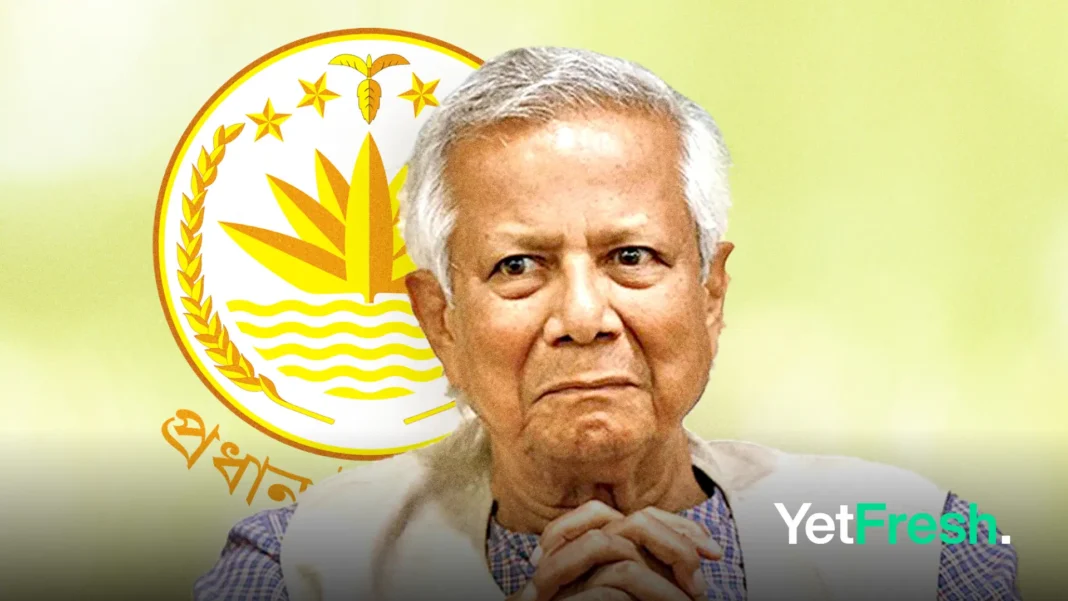Summary:
- Chief Adviser Prof Muhammad Yunus received reports from four reform commissions, marking a step toward building a “new Bangladesh.”
- The commissions focused on reforms in the constitution, electoral system, police, and anti-corruption mechanisms.
- These reports aim to strengthen democratic institutions, improve accountability, and foster public ownership in governance.
- Two additional commissions on judiciary and public administration reforms have deadlines extended to January 31.
Dhaka, January 15, 2025 — In a significant step toward reshaping Bangladesh’s democratic and institutional landscape, Chief Adviser Professor Muhammad Yunus today received reports from four key reform commissions. These reports, he stated, provide the framework for building a “new Bangladesh” and mark the beginning of a transformative chapter in the nation’s governance.
“The vision of a new Bangladesh that we aspired to build rested on your shoulders (members of the commission). You have drafted the framework for those dreams, marking the beginning of a new chapter,” Yunus remarked during a ceremony at the Chief Adviser’s Office in Dhaka’s Tejgaon area. He emphasized that the reports will serve as the foundation for national discussions aimed at assessing their alignment with public aspirations and fulfilling commitments made by the interim government.
The submissions were made by Ali Riaz, head of the Constitution Reform Commission; Badiul Alam Majumdar, chief of the Electoral Reform Commission; Iftekharuzzaman, leader of the Anti-Corruption Commission (ACC) Reform Commission; and Safar Raj Hossain, head of the Police Reform Commission. The event took place at approximately 11:30 a.m., following a meeting between Yunus and the commission leaders earlier in the day.
The interim government, which assumed office in August 2024 under Yunus’s leadership, established these commissions as part of a broader initiative to strengthen democratic institutions and promote accountability. A total of 15 reform commissions were formed, with six prioritized in October 2024 to focus on critical areas including the constitution, electoral system, police, judiciary, public administration, and anti-corruption mechanisms. The first phase commissions were initially given 90 days to complete their work but saw extensions for some, with today marking the deadline for four reports.
The Constitution Reform Commission has proposed amendments aimed at ensuring balance among state powers and enhancing democratic practices. Meanwhile, the Electoral Reform Commission has recommended measures to improve transparency and fairness in elections. The Police Reform Commission focused on modernizing law enforcement practices to uphold human rights and public safety, while the ACC Reform Commission outlined strategies to combat corruption more effectively.
The interim government plans to use these recommendations as a basis for dialogue with political parties and other stakeholders. According to sources familiar with the process, a National Unity Commission may be formed to facilitate these discussions under Yunus’s leadership. “We will discuss this with everyone… you have provided us with the foundation for our discussions,” Yunus noted.
The reform initiative represents an ambitious effort to address systemic weaknesses that have undermined governance in Bangladesh. By fostering public ownership and accountability within state institutions, these reforms aim to establish a governance model rooted in welfare and inclusivity.
While today’s submissions are pivotal, two additional commissions—the Judiciary Reform Commission and Public Administration Reform Commission—have been granted extensions until January 31 to finalize their reports. The government has expressed optimism that these comprehensive efforts will pave the way for sustainable reforms and strengthen democratic norms across all sectors.
As Bangladesh navigates this critical juncture in its history, Yunus’s interim administration remains committed to ensuring that these reforms resonate with citizens’ aspirations and lay the groundwork for lasting change.
Source: The Daily Star




